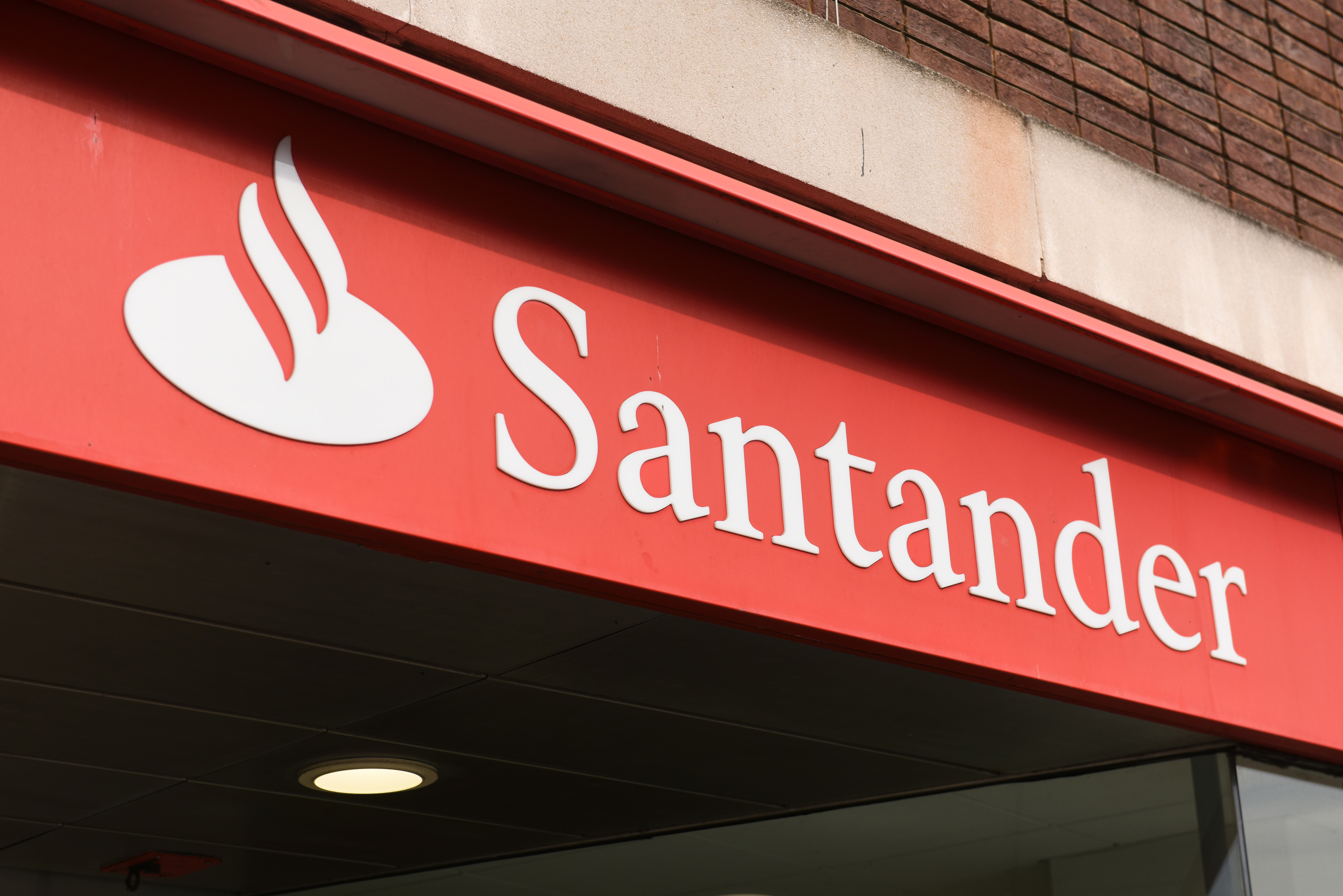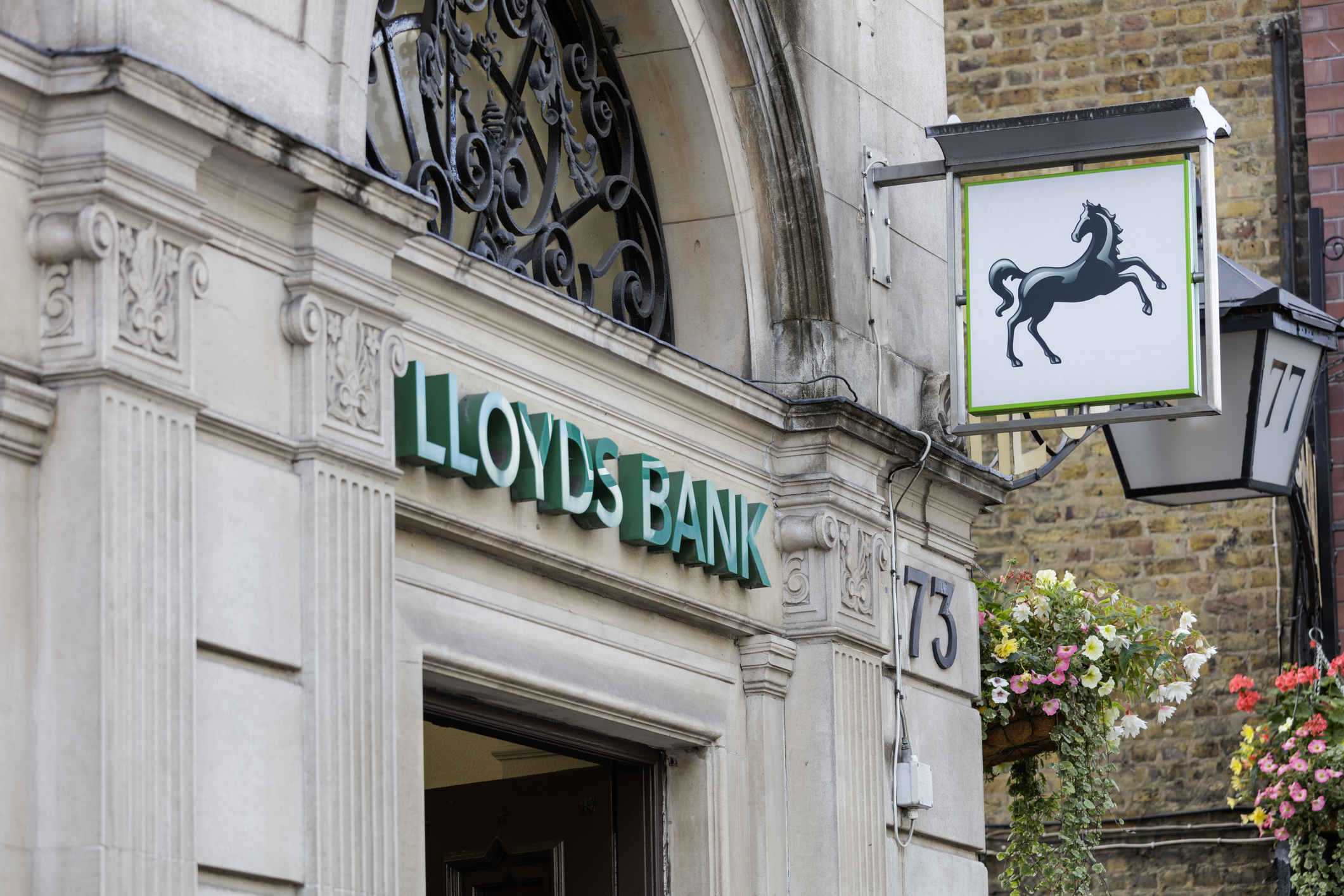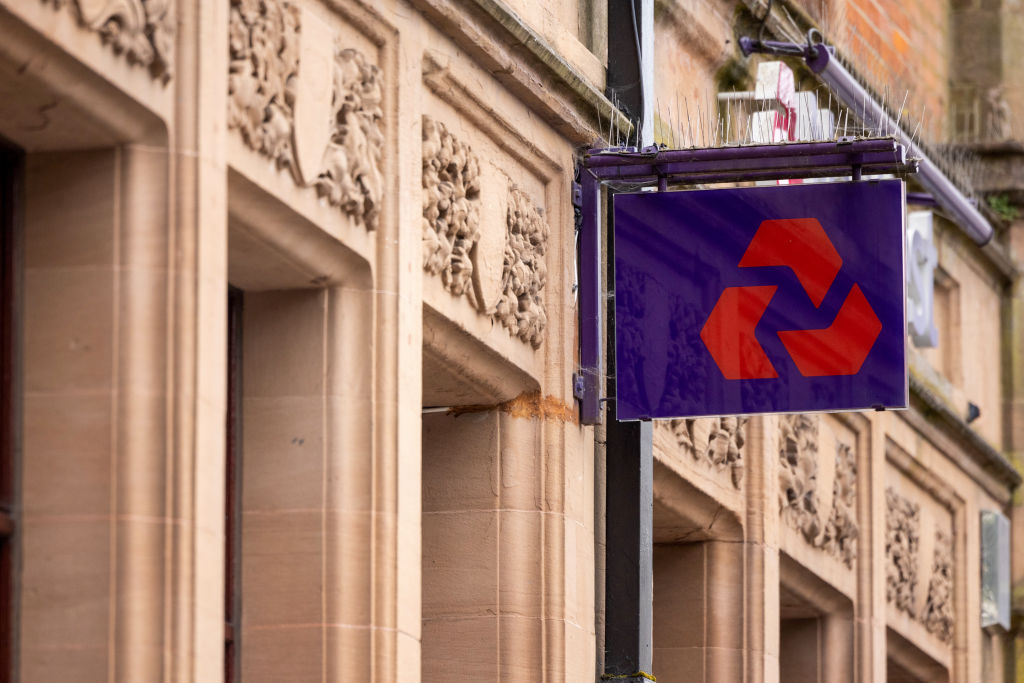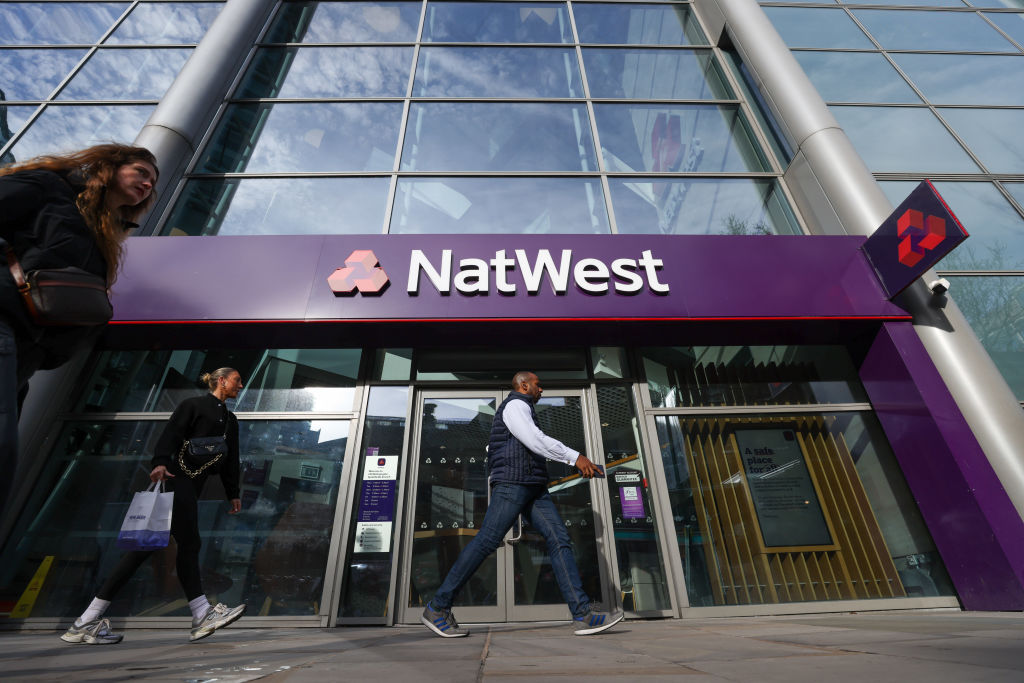Don’t miss out on the best current accounts
There’s no point sticking with a bank that offers a bad deal, says Ruth Jackson. Make sure you move when rates are cut.

Get the latest financial news, insights and expert analysis from our award-winning MoneyWeek team, to help you understand what really matters when it comes to your finances.
You are now subscribed
Your newsletter sign-up was successful
Want to add more newsletters?

Twice daily
MoneyWeek
Get the latest financial news, insights and expert analysis from our award-winning MoneyWeek team, to help you understand what really matters when it comes to your finances.

Four times a week
Look After My Bills
Sign up to our free money-saving newsletter, filled with the latest news and expert advice to help you find the best tips and deals for managing your bills. Start saving today!

There's no point sticking with a bank that offers a bad deal. Make sure you move when rates are cut.
Lloyds is cutting the interest rate on its Club Lloyds and Bank of Scotland Vantage accounts from 2% to 1.5% in July, while also hiking the monthly fees on all packaged bank accounts offered by Halifax, Lloyds and Bank of Scotland by £2 a month. For loyal Lloyds customers, this could be a good time to see if you can do better with another bank.
If you tend to keep a reasonable amount of money in your current account, then make sure you are being rewarded with a decent interest rate. The best you can get is 5% on balances of up to £2,500 with Nationwide's FlexDirect account. You need to pay in at least £1,000 a month. Be aware that the rate drops to 1% after 12 months, so you'll need to shop around again then.
MoneyWeek
Subscribe to MoneyWeek today and get your first six magazine issues absolutely FREE

Sign up to Money Morning
Don't miss the latest investment and personal finances news, market analysis, plus money-saving tips with our free twice-daily newsletter
Don't miss the latest investment and personal finances news, market analysis, plus money-saving tips with our free twice-daily newsletter
Alternatively, Tesco Bank pays 3% on up to £3,000 on its current account. To get that rate, you need to pay in at least £750 a month and have at least three direct debits going out of the account every month. Tesco allows two accounts per person, so a couple could secure a 3% interest rate on up to £12,000.
If you don't keep a lot of money in your current account, then you may be better off banking a switching bonus instead of going for the top interest rates. M&S Bank is offering a £125 gift card to new switchers to its current account. There is no minimum monthly deposit, but you must have at least two direct debits set up. The account pays no interest. However, if you deposit at least £1,000 a month, then you'll get an extra £5 a month added to your gift card for 12 months.
If you'd rather have the cash, Halifax is offering a £75 switching bonus if you move to its Halifax Reward account. On top of that bonus, you'll get a £3 a month reward if you pay in £750 a month, don't go into your overdraft and pay out at least two direct debits. Just note that you won't get the bonus if you've received a switching incentive from Halifax since January 2012.
Anyone looking for a new current account to pay their household bills from should take a look at Santander and NatWest. Both banks have current accounts that give cashbacks on bill payments. Santander's 123 Lite account gives between 1% and 3% cashback on direct debits to pay bills. The 3% rate is for phone, broadband, mobile and TV bills, with 2% paid on gas, electricity and Santander insurance, and 1% on water, council tax and Santander mortgage payments.
You need to pay at least £500 a month into the account and have at least two direct debits set up to get the cashback. There is also a £1 monthly fee. NatWest's Rewards Account has a £2 a month fee, but pays a flat 2% cashback on the same range of bills as Santander. However, you have to pay at least £1,500 a month into this account.
Finally, if you want a current account that comes with added benefits, then Nationwide's FlexPlus account is the best package by far. It offers worldwide family travel insurance up to the age of 74, family smartphone insurance, and UK and Europe breakdown cover. The account costs £13 a month, but the travel insurance alone could cost more than that if you got a separate policy.
The breakdown cover is for the account holder driving any car and the mobile insurance covers loss, theft, damage and breakdown of all phones owned by you, your partner or dependent children at the same address, provided the phone isn't worth more than £1,000. On top of all that, the account pays 3% a year on up to £2,500 for 12 months.
Pocket money TSB fiasco drags on
TSB customers were still struggling to access their accounts on Wednesday, despite assurances from the bank's chief executive that its internet and mobile-banking services were up and running, says Angela Monaghan in The Guardian. TSB had warned customers to expect disruption over the weekend while it switched from a platform rented from its former owner Lloyds to its own platform, but the problems continued well into this week.
If you've been affected by these over the past few days you can claim compensation for any losses incurred, including any charges for late payment, and knock-on costs such as credit-card interest, says The Daily Telegraph. There is also scope to claim for "non-financial harm", such as the stress caused. You can ask the bank to have your credit file corrected if not being able to access your account leads to problems with your credit score.
Car-insurance prices have fallen for the first time in three years, but most drivers are not being offered cheaper rates when their insurance comes up for renewal, says Annabelle Williams in The Times. Insurance premiums rose when the government changed the way compensation payments were calculated, meaning insurance firms faced bigger payouts but a review of this change should mean payouts will fall. Make sure you shop around when it's time to renew your policy never accept a renewal without checking it's competitive.
Online estate agents are cheaper than traditional firms, but they accounted for just 6% of sales last year, up from 5% in 2016. One reason for the slow take-up is that online agents tend to ask for payment up front, so sellers feel there is less incentive for the agents to chase a deal once they have handed over the money, says Ali Hussain in The Sunday Times.
Online agents charge a flat fee, unlike high- street agents who typically charge around 1.5% of the sale price. The huge cost savings "can be tempting and the lack of a presence on the high street is not necessarily a problem given that most people's property searches begin online" although some argue that a traditional agent can play a valuable role in ensuring a sale gets from offer to completion.
Get the latest financial news, insights and expert analysis from our award-winning MoneyWeek team, to help you understand what really matters when it comes to your finances.

Ruth Jackson-Kirby is a freelance personal finance journalist with 17 years’ experience, writing about everything from savings accounts and credit cards to pensions, property and pet insurance.
-
 ISA fund and trust picks for every type of investor – which could work for you?
ISA fund and trust picks for every type of investor – which could work for you?Whether you’re an ISA investor seeking reliable returns, looking to add a bit more risk to your portfolio or are new to investing, MoneyWeek asked the experts for funds and investment trusts you could consider in 2026
-
 The most popular fund sectors of 2025 as investor outflows continue
The most popular fund sectors of 2025 as investor outflows continueIt was another difficult year for fund inflows but there are signs that investors are returning to the financial markets
-
 Nationwide promises to protect all its branches from closures until at least 2030
Nationwide promises to protect all its branches from closures until at least 2030The building society has extended its pledge to keep all high street Nationwide and Virgin Money branches open, now until at least 2030.
-
 Green mortgages: how do they work and how much can you save?
Green mortgages: how do they work and how much can you save?Most high-street lenders now offer some kind of green mortgage deal. We look at who’s eligible, how to apply and the mortgage rates and cashback on offer
-
 Thousands of Brits switch to Nationwide, Monzo and NatWest – which banks are least popular?
Thousands of Brits switch to Nationwide, Monzo and NatWest – which banks are least popular?We look at the most and least popular banks and building societies as current account bank switches reach a record high. Is it worth moving your money?
-
 Santander launches free railcard offer - are you eligible?
Santander launches free railcard offer - are you eligible?Santander is offering a free four-year railcard to some customers from today. We explain who will qualify for the incentive
-
 Lloyds Bank returns with £175 bank switch bonus – is it worth moving banks?
Lloyds Bank returns with £175 bank switch bonus – is it worth moving banks?Lloyds Bank is offering customers £175 to move to one of its Club accounts. We look at whether it’s worth taking advantage of the bank switching bonus
-
 NatWest sell-off moves closer as the government offloads more shares
NatWest sell-off moves closer as the government offloads more sharesThe UK Treasury's stake in NatWest has fallen to below 11% - here is what it means for the share price
-
 NatWest online banking and mobile app 'running again' after outage
NatWest online banking and mobile app 'running again' after outageBreaking NatWest's online banking and mobile app went down this morning, affecting as many as 10 million users.
-
 Best and worst UK banks revealed
Best and worst UK banks revealedWe reveal the best UK banks – and the worst – when it comes to managing your money and good customer service. How does your provider compare?